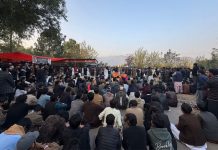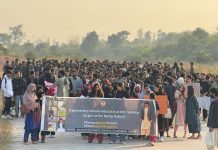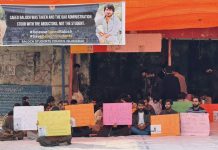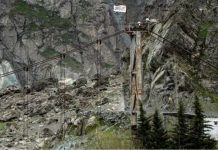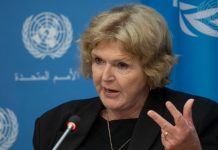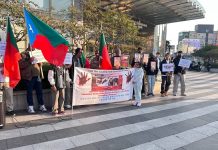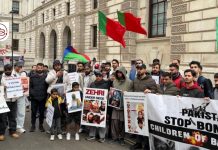It has been well over a year since Prime Minister Narendra Modi had the country frantically speculating over his (yet another) “unprecedented” move – his explicit invocation of the Baloch cause in his Independence Day address.
Shortly thereafter, the situation picked up pace. India took the issue to the United Nations General Assembly (UNGA); All India Radio enhanced its Balochi service; and Baloch leaders started frequenting Indian prime-time news debates.
Beyond India, the message was heard loud and clear as Baloch dissidents and nationalists hailed Modi’s speech as a long-awaited show of support to their movement, while Pakistani military and state circles expressed their anger, arguably reflected in the killings of 17 Indian soldiers in Uri just a month later, allegedly by Pakistan-trained militants.
However, things seem to have barely moved beyond the grand talk.
Baloch leaders anticipate with dwindling hope India’s championing of their right to self-determination. In fact, Brahamdagh Bugti sought to get asylum in the country, but his efforts appear to have gone in vain. And despite delivering the much-celebrated scathing reply to Pakistan at the recent UNGA, External Affairs Minister Sushma Swaraj has failed to call out the Pakistani Prime Minister Shahid Khaqan Abbasi on the carefully blanketed subjugation and ethnic cleansing of the Baloch.
It’s time New Delhi ascertains what Balochistan means to India; the country needs secure borders to focus more significantly on its other major goals – social, environmental, economic – to carve out a bigger niche for itself on the world stage.
The crisis in Balochistan began as a result of the forced annexation of the Baloch territory in April 1948 by the Pakistani forces, and the subsequent elimination of Baloch cultural identity. The crisis escalated when the Punjabi elite tried to inculcate a new sense of Pakistaniyat into the many people(s) – majorly, the Baloch, Sindhis, Pashtuns and Bengalis – who had lived for centuries on the land that suddenly became Pakistan.
The conflict has intensified, as explained by the exiled Baloch leader and foreign spokesperson of the Baloch National Movement (BNM), Hammal Haider Baloch, and also a 70-year-long blood-soaked history, with the shocking plunder of natural resources, gross abuse of human rights and reprehensible political repression in Balochistan.
While the latest census figures indicate an economic revival in Pakistan’s largest but historically most impoverished and resource-rich province, Karima Baloch warns of deception and elusiveness. The 30-year-old chairperson of the Baloch Student Organisation, Azad (BSO-Azad), laments that her fellow Baloch have been “reduced to a minority in their own province” and their voices have been further stifled as a result of massive influx of non-Baloch workers employed in ‘mega projects’ of resource extraction.
Add to this the ever-lurking danger to the lives of journalists and human rights activists who challenge the state narrative and try to access information from the insurgency hotspots – think Muhammad Afzal Khwaja, Mumtaz Alam, Irshad Mastoi, Abdul Razzaq Baloch and Sabeen Mahmud, among many others who have fallen victim to the evil designs of the deep state as they dared to operate in Pakistan’s dangerous information vacuum.
The situation is only expected to worsen with even tighter controls and increased militarisation in the region, carried out to facilitate the smooth functioning of the projects run by the powerful consortia from Pakistan’s largest arms supplier, China, under the grandiose China Pakistan Economic Corridor (CPEC). Or as Hammal Baloch calls it, the “China Pakistan Economic Exploitation Corridor”. With fears of a slow genocide escaping the eyes of the international community, Hammal and Karima appeal to “democratic powers such as India” to extend support to the Baloch and give a powerful voice to their woes.
For India, the question at this stage is neither about the means of its support to Baloch nor the desired result. Instead, India first needs to reaffirm, explicitly, its solidarity with the Baloch and then formulate a policy of consistently supporting them.
Even without considering a decision between the two end goals – an independent Balochistan or the upliftment of the Baloch within the parameters of reformed Pakistani federalism – and focusing solely on the crisis at hand and even with something as inconsequential-sounding as ‘moral support’ – extended consistently, India will strengthen the invisible yet bloody movement by taking it global, and to some degree, secure its own strategic and economic interests.
However, what has developed in India since Modi’s speech is anything but consistent, reactionary and jingoism-driven hue and cry over Balochistan by impetuous politicians as well as insincere and irascible nationalists who blurt out the ‘B-word’ whenever Pakistan brings up Kashmir.
Such a response-based, tit-for-tat use of the Baloch card does more harm for India than good. It gives Pakistan an incentive to internationalise the Kashmir issue to silence India and does not offer any real support to the Baloch. Worse still, tacitly equating the two profoundly dissimilar conflicts in this manner discounts the role played by Pakistan in giving the Kashmir issue its present shape and undermines India’s efforts, under its asymmetric model of federalism, to resolve the crisis in the valley.
On the other hand, a long-term Balochistan policy resulting in a stronger and better organised Baloch insurgency will keep Pakistani forces tied up domestically, and a consistent one will weaken them.
Given that Pakistani military is more inclined than the civilian government in supporting militants to achieve foreign policy objectives in Kashmir, increased tension in Balochistan will not only reduce its engagement in Kashmir but also control, to some extent, militancy in the valley. The possibility of dealing with a more visible, louder and powerful Baloch movement as a result of India’s constant support will deter the military establishment from avoiding talks with the Baloch dissidents and also from sponsoring cross-border terrorism.
There is more – a stronger Baloch movement will directly target extremist groups such as Lashkar-e-Khorasan and Lashkar-e-Janghvi, which are being used to quell the insurgency in the province.
While economic stability and growth in Pakistan would have traditionally been considered in India’s interest, the geographical design of CPEC, which has Balochistan’s Gwadar as its vital nodal point, poses the threat of internationalisation of the Kashmir dispute. This infrastructure development corridor will run from Kashgar in Western China and pass through the Gilgit-Baltistan region of Pakistan-administered Kashmir, over which India places a territorial claim.
Moreover, by providing the Chinese with a chance to develop a deep sea port in Gwadar, CPEC will undermine India’s regional interest by granting China the optimal strategic location on the Arabian sea, close to the Strait of Hormuz and the Persian Gulf. Gawadar, along with the rest of the “string of pearls” ports in Myanmar, Sri Lanka and Bangladesh could hold the key to Chinese influence in India’s neighbourhood.
While it might be tempting for an energy-hungry India to think of independent Balochistan in terms of a major investment destination and a resource-rich ally, supporting the Baloch, and thus impeding CPEC, will also weaken, in the short term, the competition Indian-developed Iranian port of Chahbahar could face in the future from the Chinese-developed Gwadar.
Acting on his initiated and much talked-about call of support to the Baloch cause could prove instrumental to Modi in securing him a second prime-ministerial term. First, because it will tackle public dissatisfaction with his initial handling of Pakistan – ‘saree diplomacy’ vis-à-vis Gurdaspur, Pathankot and Uri attacks – and second, because it will strengthen his image as a risk-taking and forward-moving leader.
More importantly, a Balochistan policy will help India attain a voice that has, since the days of the Gujral Doctrine, largely been muted internationally or at least riddled with a form of perpetual neutrality that pulls back aspiring democratic world powers to a state of confusing reluctance.
With Gwadar being developed into a shiny new metropolis complete with a large airport and a string of five-star hotels – as local Baloch population get driven off their lands, deprived of necessities such as water and energy; with the number of Chinese and other non-Baloch settlers essentially doubling each year, with frequent suspension of internet connections and continuing saga of indiscriminate killings and mass scale torture – the recent silence on the part of the ‘moral power’ India is deafening.
A strategy designed to nourish a genuine freedom movement, which in its current phase is being led by secularists and democrats such as Karima and Hammal Baloch, will testify to the firmness of India’s belief in democratic ideals and reiterate her desire to be a vocal, relevant and change-inducing power, while giving the neglected Baloch the much-needed global visibility and enabling India to break free from years of essential impotency against Pakistan’s use of non-conventional forms of warfare, as well as to powerfully assert herself vis-à-vis a creeping Chinese maritime dominance in the region

















